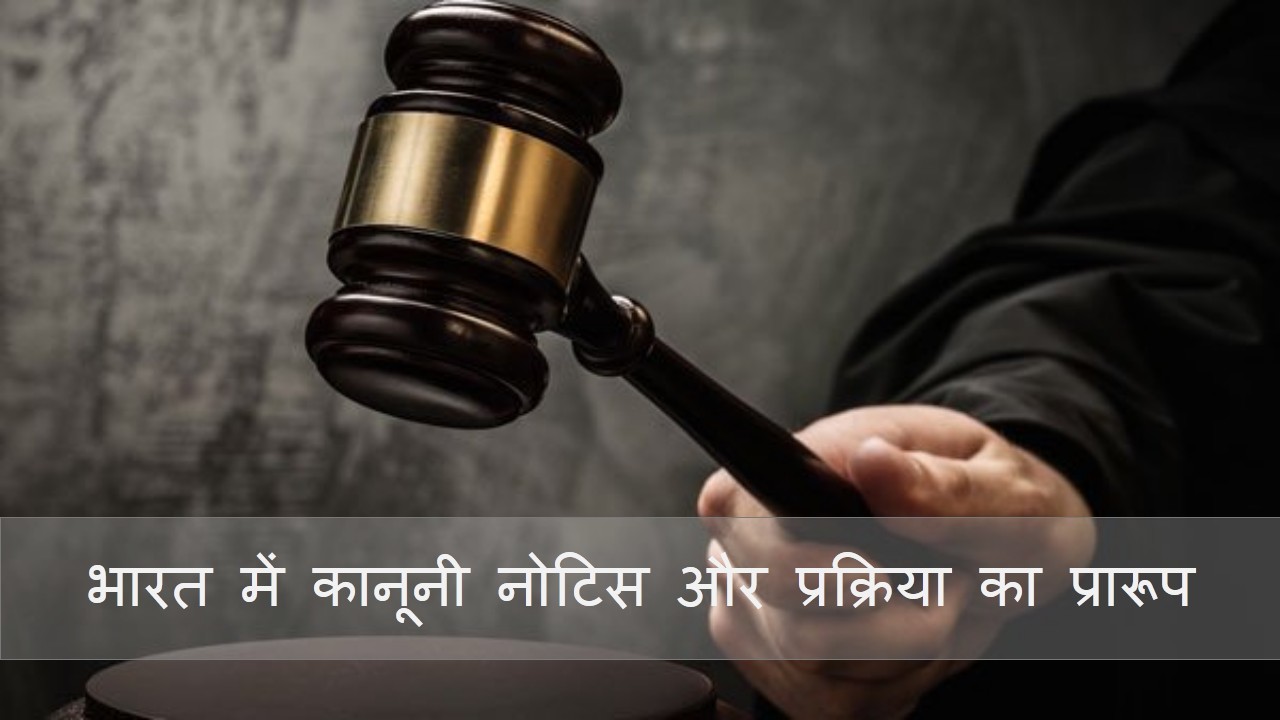All legal action notice can be taken only once when you want to take the entity or individual to court. It is only a process that brings the law to court. The notice sent is known as a legal notice.
A legal notice, therefore, is a formal communication to a person or entity notifying the other party of your intention to take legal action about them.
This notice, when sent, states your intention prior to legal proceedings and, thus, informs the party of your complaint. Many times, a legal notice that serves another will set the other party on the heels, and the problem can even be resolved out of court, with fruitful discussions on both sides.
Below you can see our important services like how to apply for food license, how much time it takes for trademark registration and what is the process of Udyog Aadhar registration.
And, if the other party is still not accepting the complaint, one can always initiate court proceedings after a particular interval, as stated by law.
However a legal notice can serve as the object of negotiation between the parties and can save time, effort and money which are usually spent in court cases.
Required Information
A legal notice is filed as per section 80 of the Code of Civil Procedure, 1908 and is filed only in civil cases. A legal notice is an information and thus carries the following information:
- Accurate statement and facts relating to the complaint for which action is to be taken.
- Option/relief sought by the bereaved party.
- The relief at hand/how to solve the problem, a summary of the facts and how it can be solved.
Full details about the problems that the aggrieved party is facing jointly with what can be done to resolve the issue need to be clearly mentioned. The last past of the legal notice should contain a detailed description of how the relief can be obtained / the problem can be resolved, if the complaint is mutually agreed upon.
A fully drafted legal notice can act as a mediator between the two parties and help the court resolve the issue, if they are both willing to settle on the issue.
filing a legal notice
A legal notice, though a simple document, requires precision and accuracy and the use of certain language to ensure that the message sent is correct. A legal expert or an agent can help in forwarding the legal notice in accordance with the law and spoil it as necessary for the particular issue.
- The first step is to draft a legal notice, to address the issue, with relief and definite time frame (say, 30 to 60 days) to resolve the issue, to be addressed to the other party, and for one sent through Registered Advertisement Post.
- After sending the notice, save the copy of the receipt sent. This can come in handy in case you file for a court case.
- Wait for a certain period of time before filing a court case.
- Now, the person or entity to whom the legal notice is addressed will have the aforesaid days to agree to return or settle out of court with the notice.
While the other party may or may not respond to the legal notice, it is necessary for the person to whom the legal notice is addressed to send a reply within the stipulated time. If the notice is not responded to, there may be a loss of non-compliance with the law, and thus, may give an unfair advantage to the other party when appearing in court.
Legal notices can also be sent in person. One can draft a legal notice, and authorize it before sending it to the other party. However, if there is an urgent need to close the legal case, if the matter reaches court, and it is necessary to cite what you have claimed, it is necessary for you to have an expert in the law to make copies of the legal notice. will work for the benefit.
The same applies to responding to a legal notice, because here also one should not use the appropriate law to return claims sought by the other party.
Know More:



